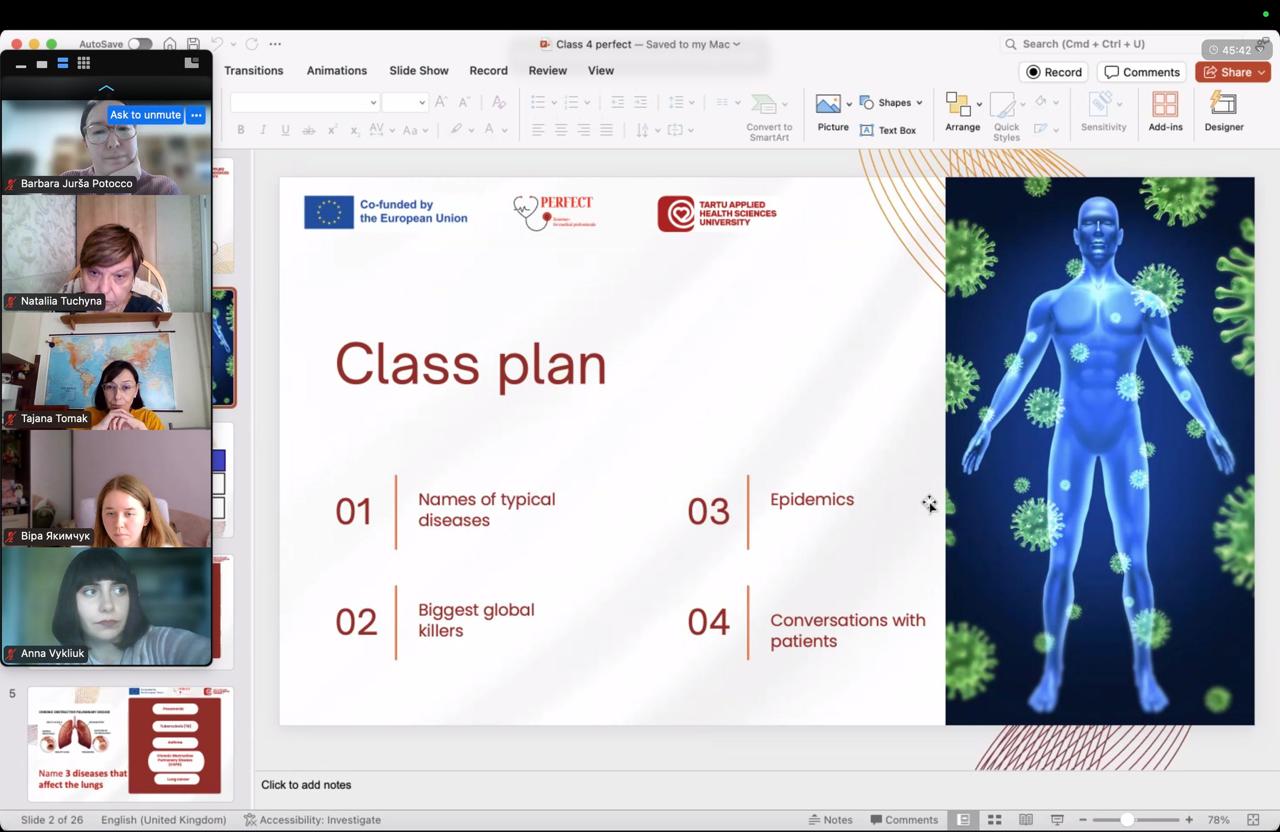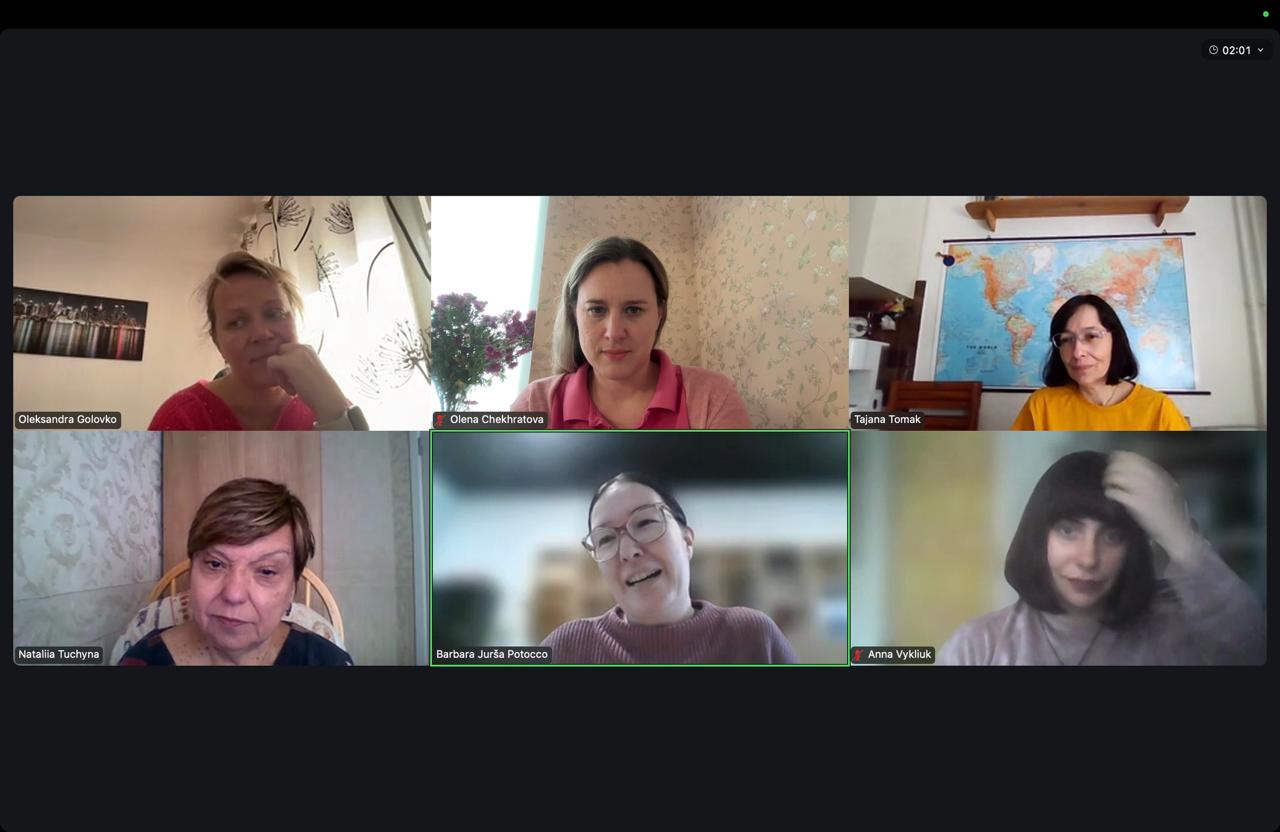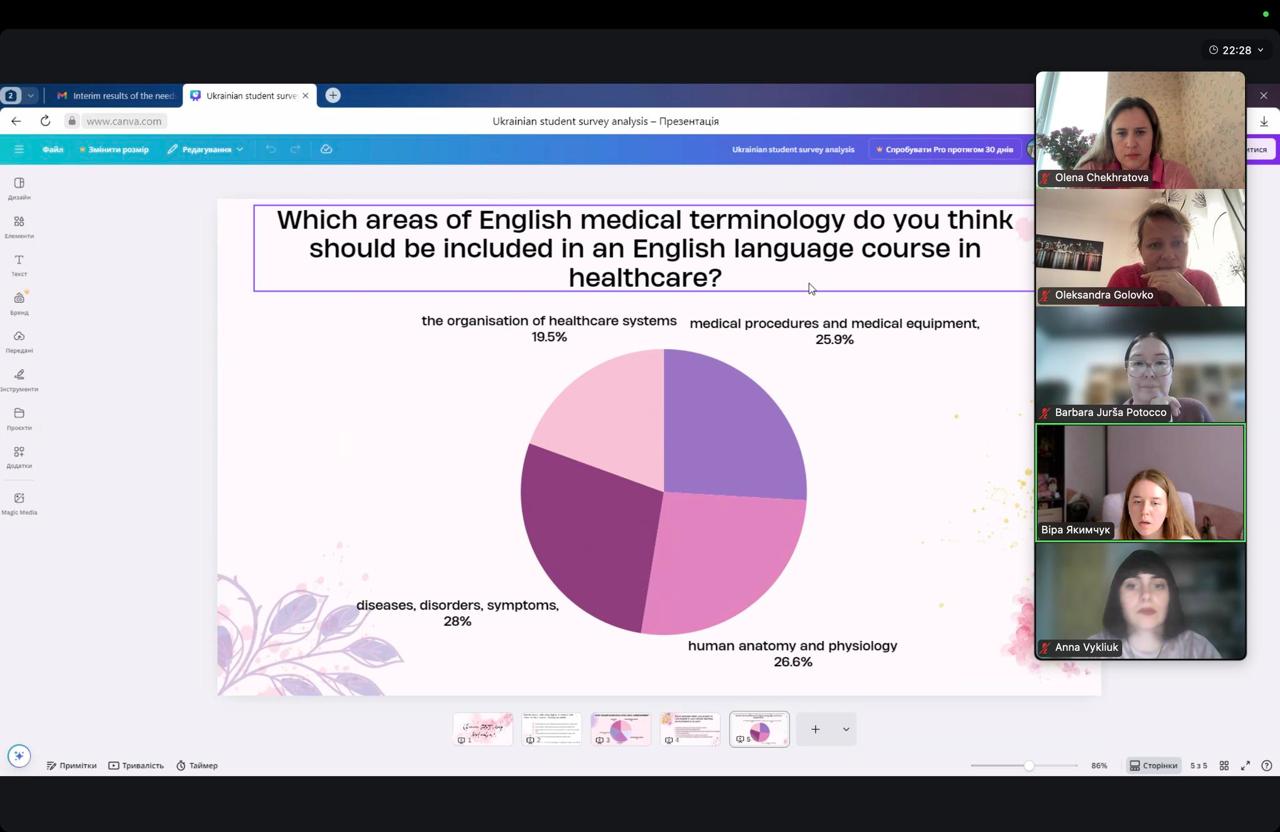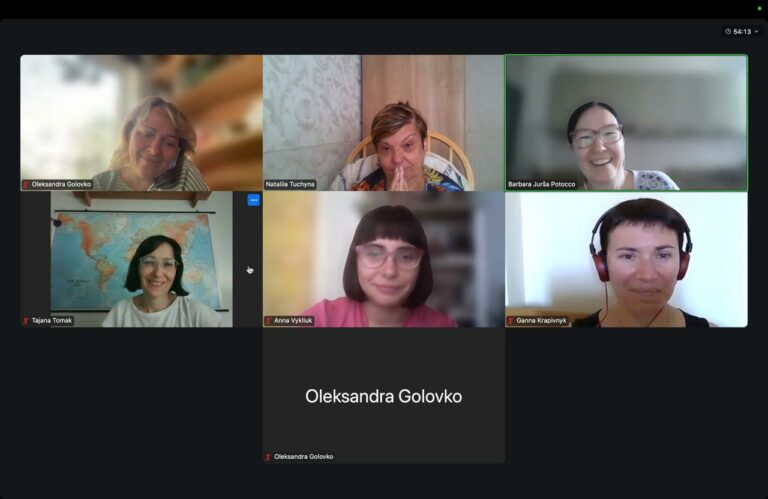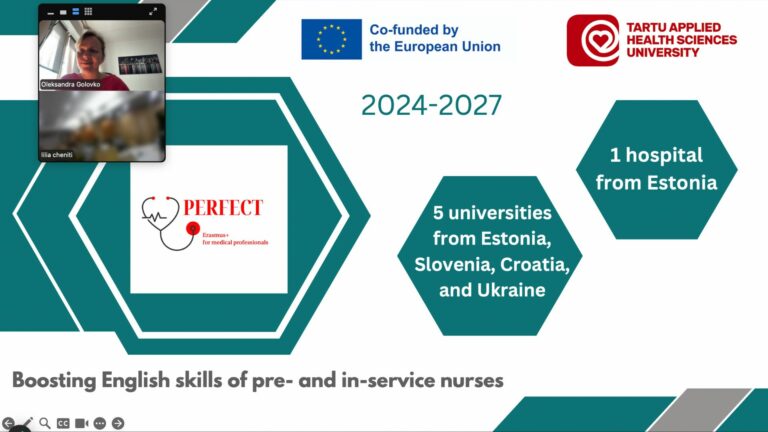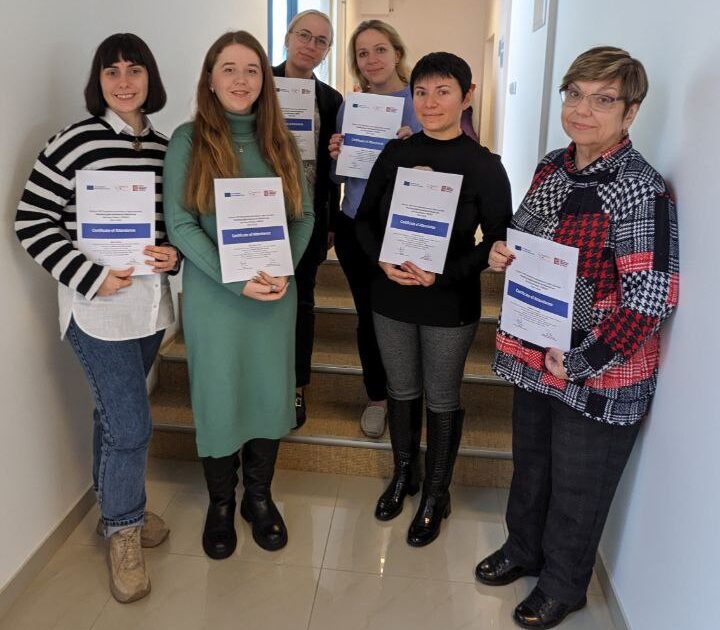Identifying Challenges in English for Nursing
On 1 October 2025, the partners of the PERFECT project held another working meeting to review ongoing progress and to discuss key findings from recent activities. A major focus of the session was the analysis of survey data collected among medical students and healthcare professionals, primarily from Ukraine.
Although results from Estonia, Slovenia, and Croatia are still being processed, the Ukrainian responses already provide valuable insights. Both nursing students and practicing medical staff report that they face significant difficulties with spoken English. While many have studied English as part of their education, they rarely have the opportunity to apply their skills in real professional settings, which limits both confidence and fluency.
Another shared challenge identified in the survey concerns medical vocabulary. Participants from both groups highlighted terminology related to diseases, treatments, medical equipment, and nursing practice as areas that are especially difficult to master. At the same time, they also emphasized the importance of developing competence in these areas, given their direct relevance to daily professional responsibilities. These findings underline the necessity of creating targeted resources that go beyond general language learning and focus specifically on the linguistic realities of healthcare.
The project partners also discussed possible methods of analyzing survey data more effectively. Since large amounts of information are being gathered across four countries, the team is considering the use of specialized tools to integrate and process all responses in bulk. Such an approach would allow for a more systematic comparison of the needs of nursing students and medical staff across different national contexts. In addition to survey analysis, the meeting addressed the implementation of Unit on Diseases, Symptoms, and Treatment. Partners exchanged their experiences of how the newly developed materials had been used in classrooms, focusing on student engagement and learning outcomes.
Feedback showed that students struggle with the questions of translation and linking their knowledge in the native language with the linguistic competences. This feedback is essential for refining the content and ensuring that future units strike the right balance between accessible language and complex professional concepts. Finally, the meeting looked ahead to the next stages of development. The partners began outlining the learning objectives for Units 5 and 6, which will build on the foundations already established in earlier units. Planning also continued for the upcoming offline partner meeting in Slovenia, where further progress will be reviewed, and strategies for the next semester will be agreed upon.

